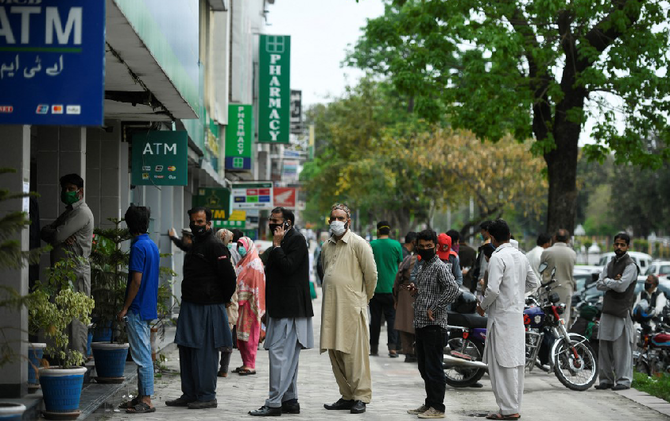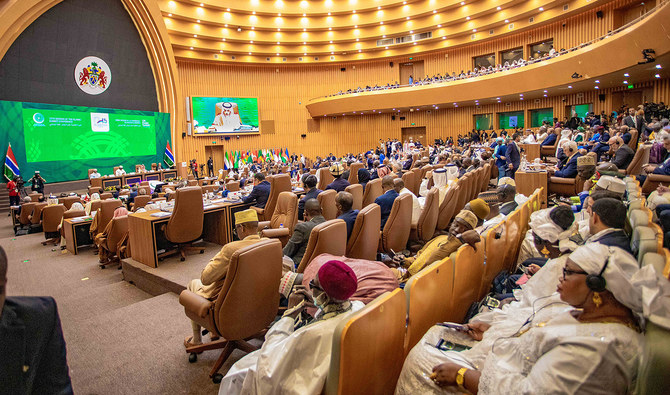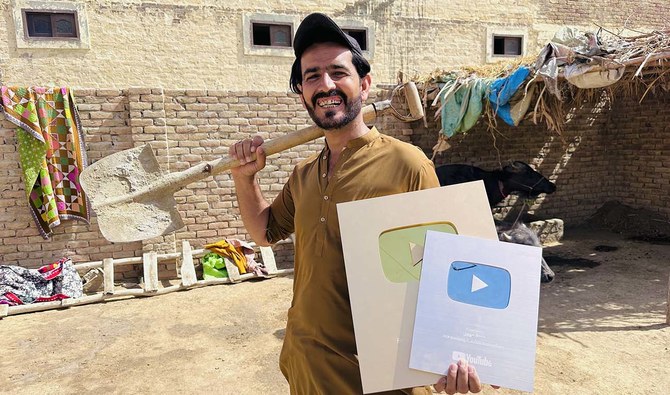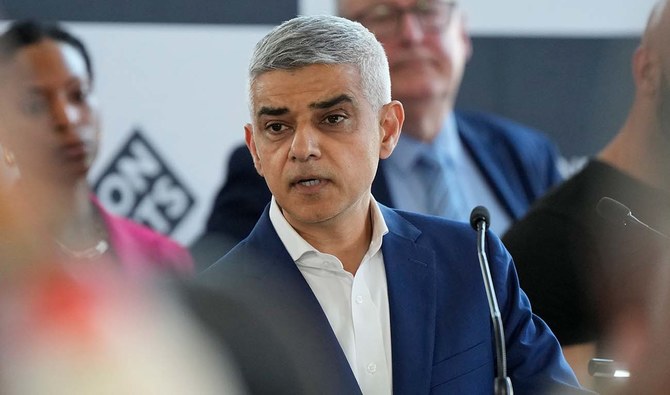KARACHI: The Islamic banking industry of Pakistan has posted 30% and 27.8% growth in overall assets and deposits respectively during 2020, the highest such increase since 2012, central bank data shows, driven by increasing access to shariah-compliant financial instruments and growing faith-based demand.
Twenty-two Islamic banking institutions currently operate in Pakistan: five Islamic banks and 17 conventional banks with standalone Islamic banking branches.
The overall assets of the industry increased to Rs4.3 trillion while deposits reached Rs3.4 trillion by the end of December 2020, accounting for 17% of all assets and 18.3% of all deposits of the country’s entire banking industry, according to the State Bank of Pakistan (SBP).
“This is the highest increase in assets in a year since 2012 and in deposits since 2015,” the SBP said on Wednesday in its Islamic Banking Bulletin report for the quarter that ended on December 31, 2020.
“Over the last five years, both assets and deposits of the Islamic banking industry have more than doubled,” the central bank said. “This growth in assets and deposits of the Islamic banking industry is encouraging, particularly due the fact that the industry was also faced with the COVID-19 pandemic challenges during 2020.”
Financing for the Islamic banking industry also grew by 16% during 2020, and the non-performing finances (NPFs) to financing (gross) ratio declined from 4.3 %, as of the end of December 2019, to 3.2%, as of the end of December 2020.
Bankers say the growth in Islamic banking, where under shariah the payment and receipt of interest is strictly prohibited, is driven main due to increasing access.
Sana Tawfik, banking sector analyst at Arif Habib Limited, said the central bank had been promoting the sector’s development through the introduction of legal, regulatory and shariah-compliant frameworks for instruments such as Naya Pakistan Certificates (NPCs) under the Roshan Digital Account (RDA) initiative, which are available to overseas Pakistanis and those who had declared assets abroad.
“Steps taken by SBP to promote Islamic banking, inflows through RDA in NPCs, Islamic sukuks and the increasing frequency of sukuk auctions are the other couple of reasons driving it,” Tawfik said.
Ahmed Ali Siddiqui, senior executive vice president of Meezan Bank — Pakistan’s first full-fledged Islamic bank — told Arab News there was “stronger public demand” for shariah based or interest free banking.
“It is continuously fueling growth,” he said. “The development of Islamic capital market and availability of financial instruments like Sukuk expedited the growth.”
He added that the COVID-19 pandemic had proven the stability of Islamic banking.
“Surprisingly Islamic banking has shown strongest growth during COVID-19 crisis,” Siddiqui said. “This shows the stability factors of the Islamic economic system based on real economic conditions.”
Pakistani Islamic banking sector posts 30% growth — central bank
https://arab.news/zud35
Pakistani Islamic banking sector posts 30% growth — central bank

- Overall industry assets increased to Rs4.3 trillion, deposits reached Rs3.4 trillion by end of December 2020
- Bankers say growth driven by increasing access to shariah-compliant financial instruments and growing faith-based demand
At OIC summit, Pakistan expresses concern over Israel’s ‘brutal’ military onslaught in Gaza

- Pakistan’s Deputy PM Ishaq Dar expresses full support for Palestine’s inclusion as a United Nations member
- Dar urges OIC member states at Banjul Summit to push for immediate and unconditional ceasefire in Palestine
ISLAMABAD: Pakistan’s Deputy Prime Minister and Foreign Minister Ishaq Dar on Sunday expressed his deep concern over Israel’s “brutal military onslaught” in the West Bank and Gaza, state-run media reported, calling for an immediate ceasefire in Palestine.
Dar was speaking at the Organization of Islamic Cooperation (OIC) summit being held against a backdrop of widespread anger over Israel’s military actions in Gaza. The Jewish state has killed nearly 35,000 Palestinians and caused massive destruction of hospitals, schools and residential neighborhoods in the densely populated area.
The Pakistani deputy prime minister arrived in Gambia on Wednesday to present his country’s perspective on a wide range of issues, including the war in Gaza and the rights situation in Indian-administered Kashmir.
“Deputy Prime Minister and Foreign Minister Senator Mohammad Ishaq Dar on Sunday expressed Pakistan’s deep concern over Israel’s ongoing brutal military onslaught against the Palestinian people in Gaza and the West Bank,” the state-run Associated Press of Pakistan (APP) reported.
“In the backdrop of the genocide of Palestinians and atrocities of Israeli forces, he urged the OIC Member States to work together for an immediate and unconditional ceasefire.”
Dar also expressed Pakistan’s support for Palestine’s admission as a full member of the UN, demanding the resumption of the process for a two-state solution in the Middle East.
The Pakistani deputy prime minister called for the creation of a viable, contiguous and sovereign state of Palestine based on the pre-1967 borders.
Dar also spoke on an uptick in Islamophobic sentiments and incidents in different parts of the world, particularly since the outset of Israel’s war in Gaza last year in October.
He urged the OIC to formulate a joint strategy to work with global social media platforms to harmonize their content regulation policies for blasphemous, anti-Islamic and Islamophobic content.
“Dar also strongly condemned the surge in anti-Pakistan rhetoric and Islamophobic narratives by India’s political leaders during the ongoing Lok Sabha elections which threatened the regional stability,” the APP said.
He urged the OIC to work collectively to address the existential threat of climate change, which caused catastrophic floods in Pakistan in 2022 that killed over 1,700 people and affected over 33 million in total.
Dar met The Gambia’s president and his counterparts from Turkiye and Azerbaijan to discuss enhancing bilateral trade and economic cooperation, Pakistan’s foreign ministry spokesperson said in a statement.
Pakistan to face India on Oct. 6 in women’s T20 World Cup clash

- ICC Women’s T20 World Cup to run from Oct. 3-20 in Dhaka and Sylhet
- Pakistan are placed in Group A with Australia, India, New Zealand, Qualifier 1
DHAKA: England will face South Africa in the opening match of the ICC Women’s Twenty20 World Cup to be held in Bangladesh later this year, the International Cricket Council announced on Sunday.
The event will run from October 3 to 20 in the capital Dhaka and the northeastern city of Sylhet, with warm-up matches starting on September 27.
Hosts Bangladesh and the top six teams from the previous edition in South Africa — Australia, England, New Zealand, South Africa and the West Indies — qualified automatically for the tournament, with Pakistan joining them as the next best ranked team.
Ireland, the UAE, Sri Lanka and Scotland are in contention for the remaining two places, with the semifinals of the qualifying tournament being held in the UAE.
Six-times winners and current world number one Australia will play in Group A alongside India, New Zealand, Pakistan and a Qualifier 1.
Neighbours and rivals India and Pakistan will face off on October 6.
Group B will feature South Africa, Bangladesh, England, West Indies, and Qualifier 2.
“Over the last six to seven years we have seen women’s cricket grow exponentially,” ICC chief executive officer Geoff Allardice said at the announcement of the fixture list and trophy unveiling in Dhaka.
“This is going to be a very special tournament,” he added.
It will be the ninth edition of the tournament, with Bangladesh previously hosting in 2014.
From bricks to clicks, Pakistani laborer achieves fame and financial independence via YouTube videos
From bricks to clicks, Pakistani laborer achieves fame and financial independence via YouTube videos

- Riaz Ali who built homes working as a manual laborer initially began making videos on TikTok
- 30-year-old made his YouTube channel in 2022 and has since become an online sensation
SANGHAR: Riaz Ali, 34, would stack brick over brick and bond them with mortar, a thick paste of cement, water and sand, as he built homes and did other manual labor work for years in the southern Pakistani district of Sanghar.
In 2022, he started making engaging video content that included throwing and catching mortar, targeting a tall pole with a motorbike tire and some prank videos, which have not only turned the daily wager into a millionaire but also a digital sensation.
Ali, better known as Riaz Jaan, initially posted videos on TikTok after which a friend advised him to post them on YouTube. He created his YouTube channel in April 2022 which was monetized only nine months later.
He now earns 20 times more than what he used to make two years ago.
“As a laborer, my wage was Rs1,500 [per day]. In a month, I used to earn Rs30,000 or Rs35,000 ($107-$125) as it was an inconsistent livelihood,” he told Arab News on Thursday.
“From YouTube, I earn more than Rs500,000 ($1,795) per month.”
Ali, who has 1.9 million subscribers on YouTube, 439,000 followers on TikTok and 359,000 on Facebook, says his content went viral through YouTube Shorts — vertical videos that have a duration of 60 seconds or less.
“My first earnings on YouTube were Rs800,000 ($2,872). I had never seen such a huge amount of money before. My family and I were so delighted that such a significant sum had come into my hands,” he said.
“After YouTube, my life changed. As they say, when Allah gives, He gives abundantly.”
Ali, who started working as a daily wager in 2010, has left his laboring job since becoming a digital sensation but still makes videos related to his former work.
He has also enabled the sharing of his viral videos on YouTube, helping several other content creators have engagement on their channels.
“There are people from various countries who repost my content and videos on their channels, and their channels have also been monetized,” he said. “I have granted them permission.”
This success has helped Ali buy two residential plots and two buffaloes, send his children to better schools, and take care of his family in a much better way. The 30-year-old has also bought a mobile phone worth Rs500,000, which he uses to create quality video content.
But Ali has not kept his success to himself and has passed his digital skills on to his family, friends and whoever he found willing to learn.
“Besides myself, my brother also has a YouTube channel where he posts labor-related videos. His channel has also been monetized,” he told Arab News.
“Additionally, I have two sons, Ali Ayan and Zeb Zohan, whose channel is also monetized.”
He says neither his brother’s nor his sons’ channels gained traction in the beginning and so, he began posting his content on their channels, which helped them gain momentum. Consequently, both channels were monetized.
The 30-year-old offers free, informal consultancy services to youth, who are interested in establishing their own YouTube channels, in his hometown of Jhol in Sanghar. He says he has around 50 to 60 youngsters, who either have monetized channels or are actively working toward them.
“I guide them all, and they follow my directions,” Ali said.
Ali Raza, a farmer and a friend of Ali, got inspired by seeing his friend earn through YouTube. Raza created his own account on the video-sharing website, where he posts funny videos.
“Since Riaz Jaan is teaching others, I also joined his group. It’s been four months since my YouTube channel has been monetized,” Ali Raza told Arab News.
“I earn between Rs25,000 and Rs30,000 ($89-$107) per month.”
Pakistan’s PM Sharif congratulates Sadiq Khan on winning third term as London mayor

- Sadiq Khan secured historic third term in office as London mayor on Saturday
- PM Sharif says Khan’s third victory reflects his dedication to public service
ISLAMABAD: Prime Minister Shehbaz Sharif congratulated London Mayor Sadiq Khan on Sunday for winning a third consecutive term in office, saying the landmark victory reflected the British-Pakistani official’s dedication to public service.
Khan, 53, who was first elected in May 2016, beat his Conservative rival Susan Hall by more than 276,000 votes, with his win representing a swing of 3.2 percent to the Labour party. He won nine of the 14 constituencies, results showed on Saturday.
Taking to social media platform X, Sharif offered his heartiest felicitations to Khan for his “hattrick” of victories.
“As a hard-working British Pakistani, he not only raised the head of his parents high but also made every Pakistani to rejoice his victory with pride,” Sharif wrote.
He offered Khan best wishes for his future success as mayor of London.
“The prime minister further said that his re-election for the third term also indicated his popularity and his devotion to public welfare,” the Pakistani prime minister wrote.
Khan, who replaced Boris Johnson as London mayor in 2016 and who has widespread policing and budget powers, has been an increasingly divisive figure in the past few years regardless of the facts for or against, particularly in the suburbs, where he fared worse than in the inner city.
His supporters say he has multiple achievements to his name, such as expanding housebuilding, free school meals for young children, keeping transport costs in check and generally backing London’s minority groups. His critics say he has overseen a crime surge, been anti-car and has unnecessarily allowed pro-Palestinian marches to become a regular feature at weekends.
With inputs from AP
Naila Kiani becomes first Pakistani woman to summit world’s fifth-highest mountain

- Naila Kiani summitted 6,485-meter high Mount Makalu in Nepal on Sunday morning, says Alpine Club of Pakistan
- Kiani’s latest achievement makes her first and only Pakistani woman to summit eleven peaks higher than 8,000 meters
KHAPLU, GILGIT BALTISTAN: Dubai-based mountaineer Naila Kiani has become the first woman from Pakistan to summit Mount Makalu, the fifth-highest mountain in the world, the country’s leading non-governmental organization promoting mountaineering said on Sunday.
Mount Makalu is located in the Mahalangur range of the Nepal Himalayas, southeast of Mount Everest. The imposing mountain stands at 8,485 meters (27,838 feet) high. Kiani’s latest achievement makes her the first and only Pakistani woman to summit eleven peaks higher than 8,000 meters.
She has previously summited Broad Peak (8,047 meters), Annapurna (8,091 meters), K2 (8,611 meters), Lhotse (8,516 meters), Gasherbrum 1 (8,068 meters), Gasherbrum II (8,035 meters), Nanga Parbat (8,125 meters), Mount Everest (8,849 meters), Manaslu (8,156 meters) and Cho Oyu (8,201 meters).
“Congratulations, Nail Kiani has summited Makalu,” Karrar Haidri, the secretary general of the Alpine Club of Pakistan, told Arab News over the phone.
“So far out of 14 eight-thousanders, she has completed the 11th peak. She summited the peak at 8:50 am local time,” he added.
The Alpine Club said in a separate statement that Naila was grateful for all the prayers and wishes she had received from people, thanking Sherpa Gelgen Dai from Imagine Nepal, a company that promotes mountain trekking and peak climbing in Nepal.
“This latest success highlights her exceptional endurance and determination,” the statement said. “She now holds the record as the fastest Pakistani, both male and female, to have summited 11 of the 8,000-meter peaks, accomplished in under 3 years.”
Kiani is a Pakistani banker living in Dubai and a mother of two. She garnered fame in 2018 after her wedding photos from K2 basecamp were widely shared on social media. The Pakistani climber received the Sitara-e-Imtiaz, Pakistan’s third-highest civilian award, in March this year for climbing Mount Everest.
“We are proud of the inspiration created by Naila, not only for her daughters and wider family but across the nation from every household,” Khalid Raja, Kiani’s husband, told Arab News over the phone.
Supporting his wife’s expeditions, Raja said it gets challenging for him at times to look after their children when Kiani is away.
“If Naila completes 14 of the world’s 8,000-meter peaks, then we hope she can reduce the levels of time that she is away from her family and we can build together from there,” he said.
“Then who knows, maybe I can do a few expeditions of my own.”










